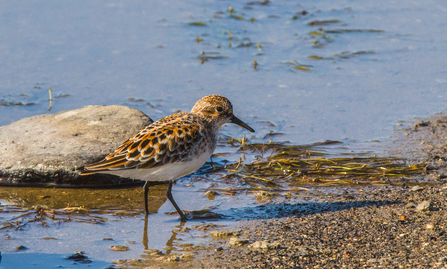Today, Friday 3rd November, The Wildlife Trusts publish a list of 10 broken promises by the UK Government on the environment. Despite the UK Government's assurances of leaving nature in a better state by the end of its tenure, there are increasing concerns that its nature-negative agenda is undermining its manifesto commitment. This includes repeated attempts to water-down environmental protections through ditching nutrient neutrality rules, the recent announcement not to prioritise species reintroduction, and the passing of the Retained EU Law Act which allows the UK Government to revoke or weaken environmental legislation without parliamentary scrutiny.
Additionally, there have been several delays to key policies such as Biodiversity Net Gain, a Chemicals Strategy and a substantial review of the National Planning Policy Framework which was promised for 2023. The latter is now unlikely to happen until next year – this means more uncertainty for the planning system which has been in turmoil throughout this parliament making it difficult to secure protection and nature recovery within the planning system.
Craig Bennett, chief executive of The Wildlife Trusts, says:
“So far, the UK Government has failed to find Parliamentary time to ban peat sales even though this has been a longstanding commitment, yet it has found time to propose the weakening of water quality laws and to announce that species reintroduction is not a priority, despite evidence that clearly shows the benefits.
“The UK is officially cited as one of the most nature-depleted countries in the world. A major study recently found that a shocking one in six species is now at risk of extinction – and the huge decline in abundance of most species bodes very badly for us all – whether through the lack of pollinators for crops or thriving habitats to filter water and store carbon.
“Nature’s buzz and song is disappearing from our lives and so are the huge range of other benefits that nature brings us. The UK Government has recognised the need for urgent action and it has made big commitments – but has failed to keep them. That’s why we’re publishing a list of this Government’s broken promises – it’s a wake-up call to us all.”

